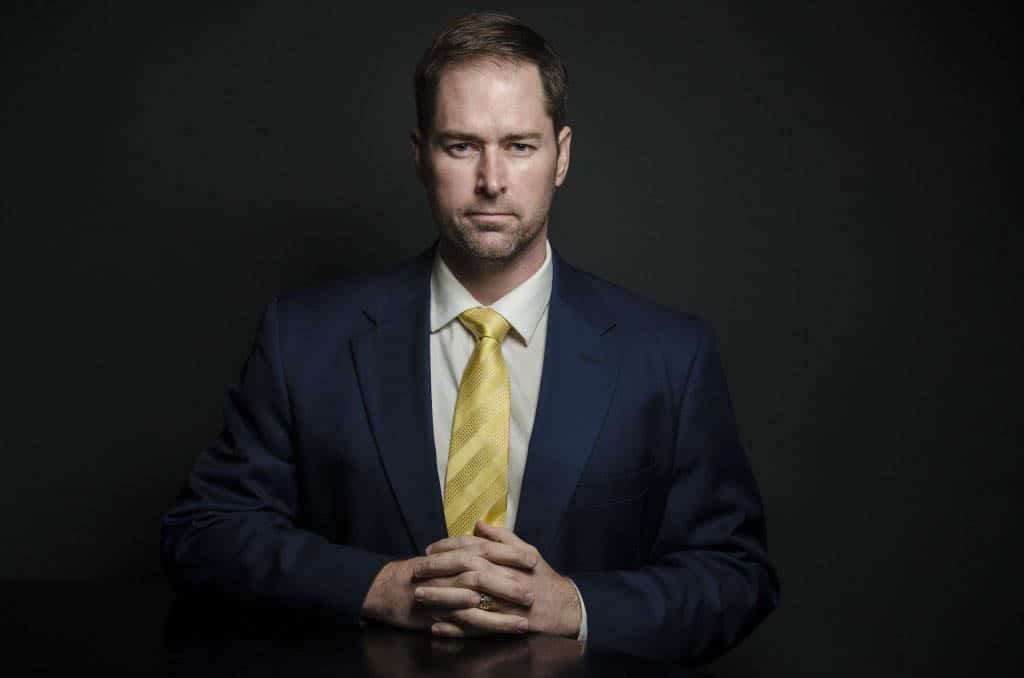Chapter 11 Bankruptcy Lawyers - Nick Davis Law
Special Chapter 11 TopicsNick Davis Law specializes in navigating the intricate aspects of Chapter 11 bankruptcy, offering tailored solutions for small businesses, real estate investors, franchises, and more.
Serving Montgomery, Harris, Fort Bend, Brazos, Grimes, Waller, Walker & Surrounding Counties
Special Chapter 11 Topics: Unique Bankruptcy Solutions for Complex Financial Situations in The Woodlands, Katy, Houston, College Station, Texas

Chapter 11 bankruptcy is more than just a way for businesses to reorganize debt—it offers unique solutions for those facing complex financial challenges. From small businesses looking to restructure quickly under Subchapter V to real estate investors and franchisees seeking to protect valuable assets, each situation requires a customized approach. At Nick Davis Law, we provide trusted guidance to help you navigate these complex cases, protect your assets, and regain financial control. Whether you’re dealing with legal claims, needing to force a plan through with a cramdown, or reorganizing as a small business, we’re here to ensure you emerge stronger on the other side.
Facing complex financial challenges? Contact Nick Davis Law today at (936) 262-7474 for a free consultation. We serve The Woodlands, Katy, Houston, College Station and surrounding Texas counties.
Subchapter V of Chapter 11: A Streamlined Bankruptcy Solution for Small Businesses
Subchapter V offers small businesses a faster, more affordable path to debt restructuring under Chapter 11.
Subchapter V of Chapter 11 was designed to give small businesses a more efficient way to restructure debt while keeping costs low. Unlike traditional Chapter 11, Subchapter V eliminates the need for a creditors’ committee and offers a more streamlined process to get your business back on track. Eligible businesses—those with debt limits under a certain threshold—can benefit from a simplified reorganization plan that allows you to keep ownership of your company while restructuring. Subchapter V is ideal for business owners who need relief from mounting debt but want to stay in control of their future.
- Who Qualifies for Subchapter V: Small businesses with debt under $7.5 million.
- Key Benefits: Reduced costs, streamlined approval, no creditors’ committee, retain business ownership.
Learn more about Subchapter V and how it can save your business. Wondering if Subchapter V is the right option for your business? Contact Nick Davis Law at (936) 262-7474 for trusted guidance.
Don’t wait until it’s too late to act. Contact Nick Davis Law Bankruptcy Relief Lawyers today for a free consultation at (936) 262-7474 and assistance in filing for Bankruptcy in The Woodlands, Houston, Katy, and College Station.
OVERVIEW OF CHAPTER 11
FILING FOR CHAPTER 11 BANKRUPTCY
CHAPTER 11 FOR BUSINESSES
CHAPTER 11 FOR INDIVIDUALS
DEVELOPING A CHAPTER 11 REORGANIZATION PLAN
DEALING WITH CREDITORS IN CHAPTER 11
MANAGING ASSETS AND OPERATIONS DURING CHAPTER 11
BANKRUPTCY LITIGATION
ADDITIONAL BANKRUPTCY PRACTICE AREAS
EXITING CHAPTER 11 BANKRUPTCY
ALTERNATIVES TO BANKRUPTCY
SPECIAL CHAPTER 11 TOPICS
What is a “Cramdown” in Chapter 11?
Understanding the “Cramdown” in Chapter 11: When Creditors Say No, But You Still Move Forward
When creditors reject your reorganization plan, the “cramdown” provision allows the court to approve it, giving you a second chance to move forward.
A “cramdown” in Chapter 11 is a powerful tool that allows the bankruptcy court to approve your reorganization plan even if certain creditors reject it. This provision ensures that debtors have the opportunity to reorganize their debt and continue operations, despite creditor objections. To secure a cramdown, you must meet specific legal requirements, such as proving that the plan is fair and equitable for all parties. Cramdowns are commonly used in cases where secured creditors hold out for better terms, but the court can force their acceptance if the plan is reasonable.
At Nick Davis Law, we help our clients prepare for cramdowns and ensure that their plans meet all necessary legal standards to gain approval, even in tough creditor negotiations.
Find out how a cramdown can help you secure approval for your Chapter 11 plan. Facing creditor objections? Contact Nick Davis Law at (936) 262-7474 to discuss your options for a cramdown.
Chapter 11 for Real Estate Investors and Developers
Chapter 11 for Real Estate Investors: Protecting Your Property Portfolio from Financial Risks
Real estate investors and developers can use Chapter 11 to restructure debt, protect assets, and continue operations without risking foreclosure.
For real estate investors and developers, financial distress can pose serious risks to valuable property portfolios. Chapter 11 bankruptcy allows you to pause foreclosures, renegotiate mortgage terms, and secure the debtor-in-possession (DIP) financing needed to keep projects on track. Whether you’re dealing with multiple properties or large-scale developments, Chapter 11 gives you the flexibility to reorganize your debt without liquidating your assets. With Nick Davis Law by your side, you can protect your investments, minimize losses, and ensure your projects have a path to recovery.
Learn how Chapter 11 can protect your real estate investments. Need help restructuring real estate debt? Contact Nick Davis Law at (936) 262-7474 for expert legal advice.
Chapter 11 for Franchises and Franchisees
Chapter 11 for Franchises: Keeping Your Business Open While Restructuring Debt
Franchise owners can use Chapter 11 to renegotiate leases and franchise agreements, restructure debt, and stay in business.
Running a franchise comes with unique financial challenges—particularly when facing bankruptcy. Chapter 11 provides franchisees the opportunity to restructure debt, renegotiate franchise agreements, and keep their doors open. This is especially important in preserving franchise agreements, which often have strict rules around ownership and management. Chapter 11 allows you to renegotiate leases, manage creditor claims, and restructure debt without disrupting the franchise. Nick Davis Law specializes in helping franchisees navigate this delicate process while ensuring long-term stability for the business.
Discover how Chapter 11 can save your franchise from financial distress. Is your franchise struggling with debt? Contact Nick Davis Law at (936) 262-7474 for legal assistance.
How Chapter 11 Affects Lawsuits and Legal Claims
How Chapter 11 Affects Lawsuits and Legal Claims: Immediate Legal Protection for Your Business
Chapter 11 can stop lawsuits in their tracks, giving your business the breathing room it needs to resolve legal claims while restructuring.
One of the most powerful benefits of filing for Chapter 11 is the automatic stay—a provision that immediately halts all lawsuits, collection efforts, and legal claims against your business. Whether you’re facing a breach of contract suit, personal injury claims, or employment disputes, Chapter 11 gives you the time to address these issues as part of your reorganization. Additionally, legal claims can be resolved as part of your Chapter 11 plan, often resulting in negotiated settlements or restructured payments. Nick Davis Law ensures that your business is protected from aggressive legal actions while you focus on rebuilding your financial foundation.
Learn how Chapter 11 can protect your business from lawsuits and legal claims. Need protection from lawsuits during Chapter 11? Contact Nick Davis Law at (936) 262-7474 for immediate legal assistance.
FAQ
Frequently Asked Questions
What happens if my business needs additional financing after exiting Chapter 11?
Once your Chapter 11 case is closed, you can seek additional financing, but lenders may scrutinize your financial history closely. Lenders might offer loans at higher interest rates or require collateral due to your recent bankruptcy. To increase your chances of obtaining favorable financing, demonstrate financial stability through a strong post-bankruptcy business plan, healthy cash flow, and timely payments. You can also explore debtor-in-possession (DIP) financing options during Chapter 11 to ensure you have adequate capital to operate while restructuring.
How does exiting Chapter 11 impact my ongoing business contracts and vendor relationships?
Exiting Chapter 11 often allows you to reaffirm or renegotiate contracts with vendors and clients under more favorable terms. Some contracts that were essential during the bankruptcy may continue, while non-beneficial contracts could have been rejected during the reorganization. It’s critical to maintain communication with vendors to ensure smooth transitions and rebuild trust after exiting. Many vendors prefer continuing business with a reorganized company, especially if they’ve seen improved financial management during the Chapter 11 process.
Can my Chapter 11 exit strategy include selling part of my business?
Yes, selling part of your business can be a strategic exit strategy from Chapter 11. This is often done to raise capital, streamline operations, or pay off creditors. However, any sale must align with the reorganization plan and usually requires court approval during the bankruptcy process. The proceeds from the sale may go toward satisfying creditor claims, allowing the remaining parts of the business to exit bankruptcy in a stronger financial position. Your attorney will help guide you through the sale process to ensure compliance with court and creditor requirements.
What is the role of the U.S. Trustee after I exit Chapter 11?
After exiting Chapter 11, the U.S. Trustee’s role diminishes, as they primarily oversee compliance during the bankruptcy process. Once the reorganization plan is confirmed and obligations are met, the Trustee no longer monitors your business or personal financial activities. However, you are still responsible for fulfilling the obligations outlined in your reorganization plan, and failure to do so could prompt creditors or the Trustee to reopen the case. Ensuring ongoing compliance with post-bankruptcy financial obligations is critical to staying on track.
What should I do if I disagree with the court’s decision on my Chapter 11 exit plan?
If you disagree with the court’s decision on your exit strategy or reorganization plan, you have the right to appeal. However, the appeals process can be complex and time-consuming, requiring you to demonstrate that the court made an error in applying bankruptcy law. During this time, your case may remain open, delaying your exit from Chapter 11. Working closely with your attorney to understand the appeals process and exploring other options to revise the plan may help avoid prolonged disputes and accelerate your exit.
Can my business resume paying dividends to shareholders after exiting Chapter 11?
Paying dividends to shareholders after exiting Chapter 11 depends on your financial condition post-bankruptcy and any restrictions in the confirmed reorganization plan. The plan typically focuses on satisfying creditor obligations before any shareholder distributions are made. If your business generates sufficient profits post-bankruptcy and meets its debt repayment commitments, you may resume paying dividends. However, this must be done carefully to ensure compliance with any lingering financial obligations, so consulting your attorney or financial advisor before declaring dividends is advisable.
Can I renegotiate long-term leases after exiting Chapter 11?
If long-term leases were addressed during your Chapter 11 case, you may have had the opportunity to renegotiate or reject leases as part of the reorganization plan. After exiting Chapter 11, renegotiating lease terms will depend on your relationship with the landlord and the remaining terms of the lease. Landlords may be more willing to renegotiate if they see improved financial stability post-bankruptcy. Any lease modification should be reviewed carefully to ensure it aligns with your post-exit financial strategy and business goals.
How does a successful exit from Chapter 11 bankruptcy affect personal guarantees?
If you personally guaranteed loans or business debts, exiting Chapter 11 can impact these guarantees depending on how the debts were treated in the reorganization plan. In some cases, the reorganization may discharge or reduce the debt, effectively removing personal liability. However, if the personal guarantee remains in place, you will continue to be responsible for the debt if the business fails to meet its repayment obligations. It’s important to work with your attorney to understand how personal guarantees are handled during the exit process and to explore options for mitigating personal risk.
How does Subchapter V affect the exit process for small businesses in Chapter 11?
Subchapter V offers small businesses a streamlined exit process from Chapter 11 by reducing the costs and complexities of traditional Chapter 11 cases. The reorganization plan under Subchapter V is often simpler and quicker to confirm, as there is no need for creditor approval as long as the plan meets certain legal standards. Small businesses can exit bankruptcy faster, with fewer court hearings and reporting requirements. Subchapter V allows owners to retain equity while focusing on repaying creditors through the reorganization plan, making it a more efficient option for small businesses.
How do I manage tax obligations after exiting Chapter 11 bankruptcy?
Tax obligations incurred during Chapter 11 bankruptcy are treated as administrative expenses and must be paid in full before exiting. After exiting, you must continue to file and pay taxes on time to avoid penalties or further legal action. Any tax debts included in the reorganization plan must be repaid according to the terms of the plan. It’s crucial to maintain detailed financial records and work with a tax professional to ensure compliance with both federal and state tax laws post-bankruptcy. Ongoing tax compliance will help rebuild your financial credibility.
Can I continue litigation or pursue legal claims after exiting Chapter 11?
Yes, you can continue or initiate legal claims after exiting Chapter 11 bankruptcy. Claims that arose after filing for Chapter 11 may not have been included in the bankruptcy case and can be pursued once the case is closed. Additionally, if certain claims were paused due to the automatic stay, they may be resumed post-bankruptcy. However, any damages or settlements awarded may be subject to creditor claims if they were part of the reorganization plan. Consulting with an attorney before resuming or initiating litigation is essential to avoid potential complications.
How does exiting Chapter 11 affect my ability to hire new employees or offer raises?
After exiting Chapter 11, you regain control over hiring and salary decisions, but it’s important to manage these costs carefully, especially if your reorganization plan includes long-term debt repayment obligations. Hiring new employees or offering raises should align with your post-bankruptcy budget and financial goals to avoid overextending your business. It’s often advisable to prioritize financial stability and reinvestment before significantly expanding your workforce. Maintaining a clear financial plan ensures that your business can grow sustainably without jeopardizing the progress made during bankruptcy.
Can I use business profits for personal income after exiting Chapter 11?
Yes, after exiting Chapter 11, business owners can draw income from business profits as long as it does not violate the terms of the reorganization plan. Any distributions to owners or shareholders should be made cautiously, ensuring that the business can still meet its debt obligations and maintain sufficient working capital. It’s important to strike a balance between compensating yourself and preserving the financial health of the business. Consulting with a financial advisor can help structure your personal income to align with both your needs and the business’s long-term stability.
How do I prevent financial setbacks after successfully exiting Chapter 11?
Preventing financial setbacks after exiting Chapter 11 requires careful planning and a commitment to maintaining healthy financial practices. Focus on creating a detailed budget, managing cash flow, and regularly reviewing financial performance. Building an emergency fund and avoiding excessive debt will help protect your business from future financial challenges. It’s also important to maintain open lines of communication with creditors and vendors, especially if your financial situation changes. Regularly consulting with a financial advisor can help identify potential risks and ensure long-term stability.
From the Blog
Recent Articles
Take Control of Your Financial Future Today
FLEXIBLE APPOINTMENTS | PAYMENT PLANS
Have more questions about Chapter 11? Contact Nick Davis Law at (936) 262-7474 for trusted answers and personalized legal advice.
At Nick Davis Law, we understand that bankruptcy is a complex and emotional process. Whether you’re an individual facing overwhelming personal debt or a business looking to restructure, we’re determined to guide you through every step. Bankruptcy is not the end—it’s the beginning of a new, more secure financial future.
Get a Free Consultation Now
Contact Nick Davis Law, serving The Woodlands, Katy, Houston, College Station and surrounding cities and counties. Take control of your financial future today—call us at (936) 262-7474. Our Montgomery, Harris, Fort Bend, Walker, Brazos, Grimes, Waller County Bankruptcy Lawyers regularly offer After-Hour & Weekend Phone and Virtual Consults and Payment Plans.
Contact us
Nick Davis Law
26418 Oak Ridge Dr.
The Woodlands, TX 77380
(936) 262-7474
The Woodlands, Texas
26418 Oak Ridge Dr.
The Woodlands, TX 77380
(936) 262-7474
Appointments Only
Bryan | College Station, Texas
750 William D. Fitch Pkwy, Ste 210
College Station, TX 778455
(979) 417-2220
Business Hours
Mon - Fri 8:00 am to 6:00 pm
Our Mission
The Trusted Family, Divorce, Bankruptcy, CPS, and Small Business Lawyers at Nick Davis Law are dedicated to providing the best and most efficient representation possible to our clients to achieve their goals quickly and cost effectively. Nick Davis Law maintain offices in The Woodlands, Katy, Texas and Bryan | College Station and serve all of Montgomery County, Brazos County, Walker County, Waller County, Grimes County, Washington County, Burleson County, San Jacinto County, Liberty County, Harris County, and surrounding counties.

 Nick Davis Law is a firm dedicated to helping individuals with all their family law needs and serves Montgomery, Harris, Waller, Grimes, Walker, Brazos, Washington, Burleson, Fort Bend and surrounding counties.
Nick Davis Law is a firm dedicated to helping individuals with all their family law needs and serves Montgomery, Harris, Waller, Grimes, Walker, Brazos, Washington, Burleson, Fort Bend and surrounding counties. 


